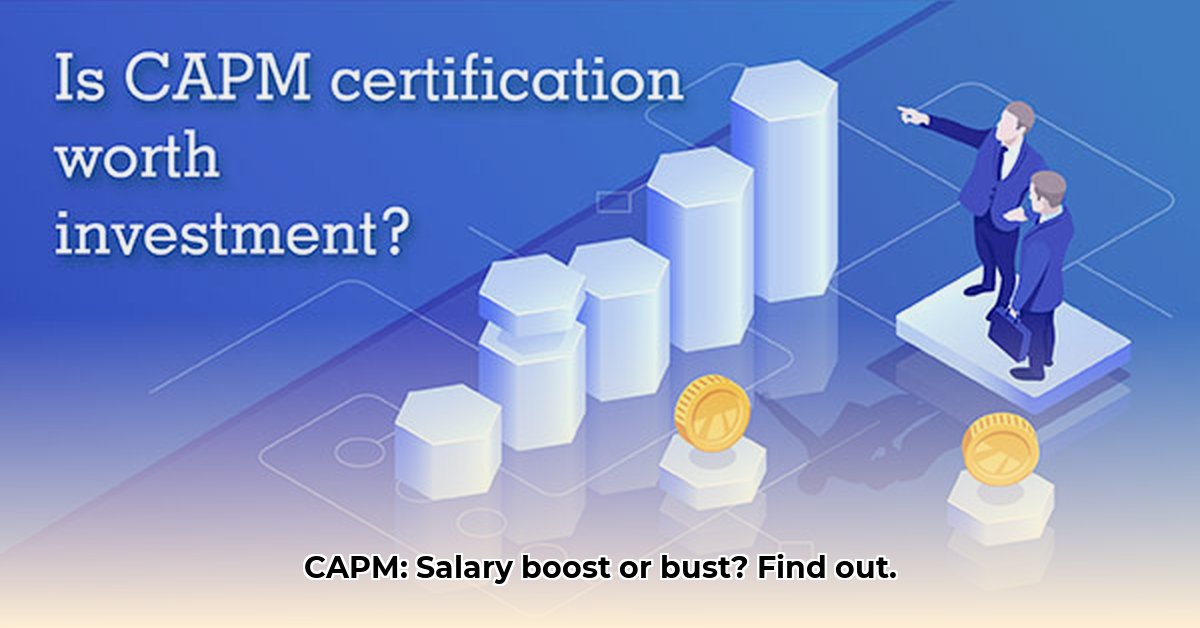
Is a CAPM Worth It?
Considering the Certified Associate in Project Management (CAPM) certification? This guide helps you decide if it aligns with your career goals by examining costs, potential salary increases, and comparing it to other certifications like the PMP. Whether you're starting or experienced, this analysis will illuminate the CAPM's value for your unique situation.
What Exactly Is a CAPM?
The CAPM, offered by the Project Management Institute (PMI), is a foundational project management certification ideal for those new to the field. It validates your understanding of project planning, execution, and management basics, serving as a stepping stone to more advanced certifications.
The Good, the Bad, and the Maybe: CAPM Pros and Cons
Every decision has trade-offs. Let's objectively examine the CAPM:
Advantages:
Resume Enhancement: A CAPM significantly strengthens your resume, setting you apart from other entry-level candidates.
Salary Improvement: While not guaranteed, studies suggest a correlation between CAPM certification and increased earning potential, particularly in competitive markets. The actual increase varies based on location and experience.
PMP Pathway: The CAPM often serves as a prerequisite for the Project Management Professional (PMP) certification, a significant advancement in the project management career ladder.
Industry Recognition: CAPM is widely recognized across industries, demonstrating commitment to professional standards and fundamental project management knowledge.
Disadvantages:
Financial Investment: Exam fees, study materials, and training courses represent a significant upfront cost (estimated $500-$1000).
Time Commitment: Adequate preparation requires dedicated study time, making it unsuitable for those seeking quick certification.
Not a Guarantee: The CAPM is a valuable asset, but success still depends on individual skills, experience, and networking efforts. It's a tool, not a magic bullet.
The Numbers Game: CAPM's Financial Return on Investment (ROI)
Exam fees alone range from $250 to $350. Factor in study materials and training (potentially $200-$600), and the total investment could reach $1000. Will this investment pay off? While studies indicate a positive salary correlation, the increase isn't guaranteed. Local market conditions and individual skills significantly impact earning potential. A thorough cost-benefit analysis aligning with your personal financial situation and career goals is essential.
CAPM vs. PMP: Choosing the Right Path
The CAPM is an excellent entry-level certification, whereas the PMP is designed for experienced project managers. The CAPM builds a foundation; the PMP validates advanced expertise. Consider the CAPM a stepping stone if you aspire to a PMP certification in the future.
Your CAPM Journey: A Step-by-Step Guide
Ready to pursue the CAPM? Follow these steps:
Self-Assessment: Honestly assess if CAPM aligns with your career trajectory and overall goals. Is this the right investment of your time and money?
Study Plan: Select a study method (self-study, online course, in-person training) that suits your learning preferences and available time.
Dedicated Study Time: Create a realistic study schedule and adhere to it consistently. Consistent effort is more effective than cramming.
Exam Registration: Register for the exam well in advance to secure your desired testing date.
Take the Exam: Once you feel prepared, confidently take the exam.
Continuous Learning: Project management evolves continually. Stay updated on industry trends and best practices even after certification.
Making the Most of Your CAPM
Maximize your CAPM's value by actively networking, attending industry events, and continuously developing your skills. The CAPM is a significant achievement, but continued professional growth is crucial for long-term success.
The Verdict: Is CAPM Worth It?
The CAPM's value depends on individual circumstances. For entry-level professionals, the investment often yields strong returns. It demonstrates commitment, provides a solid foundation, and potentially boosts earning power. For experienced managers, its value may be less pronounced. Carefully weigh the pros, cons, and costs against your unique career aspirations before making a decision.